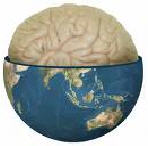From semantic Web (3.0) to the WebOS (4.0)

Nova Spivack of Radar Networks maps out his view of the evolution of the Web over the next 25 years. Nova said he isn't sure about exact dates or technologies on the top end of the map, but his view of ten-year blocks to fully evolve each phase is realistic. Nor should we get hung up on the naming convention--1.0, 2.0, etc. The idea that the next major deepening of the Internet as a platform will involve the semantic Web is reasonable, and was the subject of much discussion in November.

Given that few predicted how Web 2.0 would come to be defined during the early stages of Web 1.0, the concept of Web 3.0 is still a bit fuzzy, and Web 4.0, the WebOS on Nova's map, is really hazy. The WebOS implies that machine intelligence has reached a point that the Internet becomes the planetary computer, a massive web of highly intelligent interactions.
Source: Nova Spivack and Radar Networks
Ray Kurzweil predicts that by 2029, the WebOS will be parallel to the human brain:
By 2029, sufficient computation to simulate the entire human brain, which I estimate at about 1016 (10 million billion) calculations per second (cps), will cost about a dollar. By that time, intelligent machines will combine the subtle and supple skills that humans now excel in (essentially our powers of pattern recognition) with ways in which machines are already superior, such as remembering trillions of facts accurately, searching quickly through vast databases, and downloading skills and knowledge.
But this will not be an alien invasion of intelligent machines. It will be an expression of our own civilization, as we have always used our technology to extend our physical and mental reach. We will merge with this technology by sending intelligent nanobots (blood-cell-sized computerized robots) into our brains through the capillaries to intimately interact with our biological neurons. If this scenario sounds very futuristic, I would point out that we already have blood-cell-sized devices that are performing sophisticated therapeutic functions in animals, such as curing Type I diabetes and identifying and destroying cancer cells.
I can't predict whether Kurzweil is on target with his view of the future, but Web/Internet is gradually going to get a lot smarter, growing more similar to the human brain and collective intelligence that conceived it.